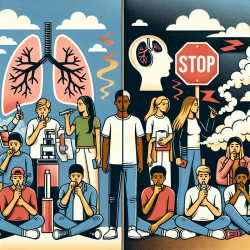Introduction
As a Special Education Director, your role extends beyond the classroom, encompassing a broader responsibility for ensuring a safe and supportive environment for all students. This includes understanding and implementing effective policies that impact student well-being, such as those addressing underage drinking. The research article "Underage alcohol policies across 50 California cities: an assessment of best practices" provides valuable insights into how local policies can be structured to better prevent underage drinking, a critical issue affecting youth health and safety.
Understanding the Research
The study conducted by Thomas et al. (2012) evaluates the presence, comprehensiveness, and stringency of eight local alcohol policies in 50 diverse California cities. These policies include:
- Conditional Use Permits (CUPs)
- Deemed Approved Ordinances (DAOs)
- Responsible Beverage Service (RBS) Training
- Social Host Ordinances
- Outdoor Advertising/Billboard Limitations
- Public Drinking Prohibitions
- Special Outdoor Events Restrictions
- Window Advertising Limitations
The research highlights significant variability in the adoption and enforcement of these policies across cities, with many lacking comprehensive and stringent measures.
Implementing Best Practices
For practitioners in the field of special education, understanding these policies can enhance your ability to advocate for and implement changes that promote a safer environment for students. Here are some steps you can take:
- Educate Yourself and Your Team: Familiarize yourself with the specific alcohol policies in your local area. Understand their strengths and weaknesses as identified in the research.
- Advocate for Stronger Policies: Use the findings to advocate for more comprehensive and stringent policies in your district. Highlight the importance of policies like RBS training and social host ordinances, which are less commonly implemented but crucial for reducing underage drinking.
- Engage with Local Authorities: Collaborate with local government officials and community leaders to discuss the research findings and explore ways to enhance local policies.
- Promote Community Awareness: Organize workshops and seminars to educate parents and community members about the impact of underage drinking and the importance of robust local policies.
Encouraging Further Research
The study by Thomas et al. (2012) opens the door for further research into local alcohol policies and their effectiveness. As a practitioner, you can contribute to this field by:
- Conducting Local Surveys: Gather data on the impact of existing policies in your area and identify gaps that need addressing.
- Collaborating with Researchers: Partner with academic institutions to conduct studies that evaluate the effectiveness of policy changes over time.
- Sharing Success Stories: Document and share successful policy implementations and their outcomes to inspire other districts.
Conclusion
By understanding and implementing the outcomes of this research, you can play a pivotal role in shaping a safer educational environment. The research provides a framework for evaluating and improving local alcohol policies, ultimately contributing to the well-being of students.
To read the original research paper, please follow this link: Underage alcohol policies across 50 California cities: an assessment of best practices.










